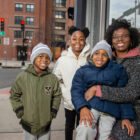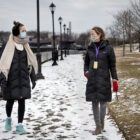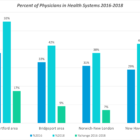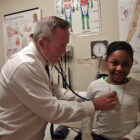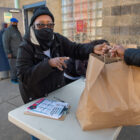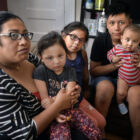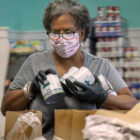children's health
Dump The Juice Boxes: Milk, Formula, Water Are All Infants And Toddlers Need
|
Kimarra Thorbourne planned to restrict added sugar in her babies’ diet as long as possible, but the Windsor mother recently started giving her 7-month-old twins “Motts for Tots” juice “to introduce them to something new.” At their 6-month checkup, the babies’ pediatrician said nothing about avoiding fruit juice or sugar. But research shows that the food and beverages babies and toddlers consume influences their taste preferences and eating habits throughout life. For babies, human milk, formula and water are all they need to drink for the first year, pediatricians say. Dr. Michelle Van Name, a pediatric endocrinologist with Yale Medicine, tells her patients that cow’s milk is the recommendation for toddlers—and it’s less expensive than juices. She said toddlers should be introduced to water at an early age so they develop a taste for it because if they get used to sweet drinks, they won’t like water.

